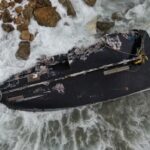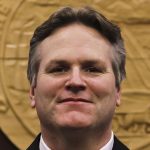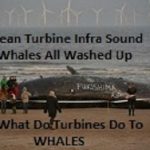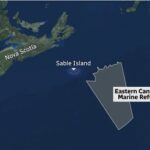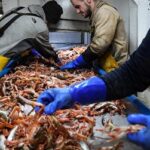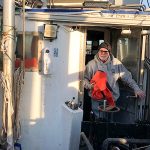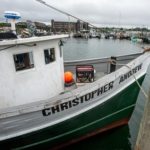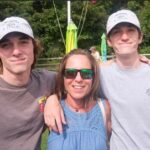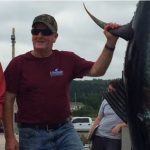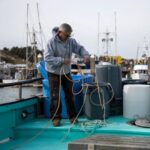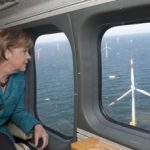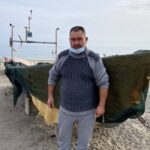 To: James W. Balsiger; Ph.D. – Regional Administrator
To: James W. Balsiger; Ph.D. – Regional Administrator
NOAA Fisheries, NMFS Alaska Region, Juneau
Enforcement Section (cc: NOAA OLE Kodiak)
NOAA, Office of General Counsel, Silver Springs
Cc: Wilbur L. Ross Jr., Secretary
U.S. Department of Commerce, Washington DC
From: Ludger W. Dochtermann, fishing vessel captain/owner- Kodiak, AK
Friday, 3 March, 2017
Dear Jim & Secretary Ross:
Thank you, once again, for a response to my letters (19 October, 2016) re Trawl violations in the Gulf of Alaska. I appreciated the website reference (http://www.gc.noaa.gov/documents/2015/Enforcement-Actions-08232016.pdf) that allowed review of the NOVA and/or NOPS cases concluded before June 30, 2016. I await review of the February report, as well.
Obviously, since my letters and your responses, the NPFMC December session indefinitely postponed or tabled the GOA Trawl Bycatch program drafting. One can only hope this matter of privatizing the groundfish which causes an extremely negative effect on other species (and fish segments) —such as halibut, and crab recovery in the GOA— has seen its end.
Moreover, while a mere restoration in Observer coverage for trawling —to just 28%— wears a mask of improvement, you surely know that I’ve long proposed nothing short of two years in a row of 100% coverage in that sector. Only then can NOAA/NMFS and the NPFMC attend to policy under “best science” etcetera.
Noting that the Amendment 80 fleet is edging forward on bycatch damages, I’d encourage the ongoing efforts toward using VMS/EMS and undersea cameras. Cod longliners relate to the historical fleet far better than do the trawl catch vessels, and we appreciate this distinction. Conversely, it pays to note, that the real problem with trawls is more often than not the failure to rig gear and tow properly, despite improved net designs. It is a captain-level fisheries behavior problem, just as deliberately decimating crab live pods and halibut on the fishing grounds to get rid of competing rights-holders (my fisheries segments), that also must be addressed. Just saying.
Ask the trawl net companies experts who make these nets, who then visit these vessels to try and attempt to show their customers how to conduct a better, cleaner, even more efficient fishery while avoiding bycatch. Ask SIMRAD and FURUNO to show off their line of products — ones they freely advertise in trade journals — to NMFS/NPFMC, and learn how modern electronics, multi-directional transducers and cameras can indeed discriminate species, to make for cleaner fishing. Please keep that in mind, Jim.
I’ve noted that the NPFMC is going back to work on tanner crab and other related issues: bycatch concerns that should always be on agenda — not set aside for years to be later revisited. Thank you for sharing concerns in the BSAI crab and halibut stocks and efforts to understand the causes of decline. We appreciate your efforts in the December proceedings of the NPFMC!
Please remember that the GOA trawlers keep imploring that NS#1 on Optimum Yield (OY), defined as maximum catch pounds, is paramount: as if only the trawl sector has rights. In a multispecies complex, this doesn’t pass the straight face test. The lost value of halibut, crab, and other species far exceeds any costs of their adjusting to cleaner fisheries, and we do not get compensatory damages for their actions.
Had it not been for congressional end-runs of former Senator Ted Stevens, two key things would not have happened.
- First, OY would be a value inclusive standard, not merely a high volume directive.
- Second, granting trawlers fish rights assigned to other fleet segments as “secondary species” (where’s that in the distinguishing system of taxonomic classifications?) would not have occurred.
- Separate sablefish and rockfish and other species in the multispecies complex would not have been part of the trawl segment rights, and once the main target species, say pollock, is caught, CVs would have to tie-up instead of raiding what pots, longlines and jig fisheries segments could catch at higher quality and greater USA consumer value.
We hear little to no discussion of this in the GOA trawl package! Please keep the NPFMC and NOAA/NMFS on its toes on Catch Shares derived from illicit congressional bullish enactments; because that defines “the Alaska model” for privatization, more than aids sustainability.
Most importantly, thank you for being about the only official who actually responds to those fishing the federal waters off Alaska. I hope to see you at NPFMC and IPHC meetings this year.
We hope Secretary Ross will tap your expertise and understand Alaska fish policy and politics.
Secretary Ross apparently wants to single out “Reducing America’s reliance on seafood imports;” and the Trump Administration signals “America First” and “fair trade” issues. In seafoods, the anti-capitalist policy of Catch Share IFQs and Processor Quota Shares need to be reviewed from the highest perspective by Commerce with regard to how PQS form an Oligopsony that at face value violates WTO and other trade reciprocity tenets. Primarily awarding in perpetuity USA catch to a few, more often than not, narrowly owned foreign corporations and non-USA markets — generally of Japan.
Japan should not have ‘an economic branch of fisheries’ in Alaska, designed to product launder profits and protein away from USA secondary production opportunities and our markets. This enormously contributes to the net national deficit in seafoods balance of trade.
It artificially suppresses ex-vessel prices to Americans, and lowers the true value of USA seafood exports as intercompany transfers from USA hosted subsidiaries flow directly to foreign parent firms at self-determined low values not consistent with ‘open trade’ valuation doctrines.
How NOAA/NMFS and the regional councils can get away with calling privatization schemes, “catch shares,” using the term “market-based solutions” is beyond all reality. Government sponsored monopolies and oligopsony (buyers-as-owners cartels) are more accurate descriptions for this non-capitalistic, anti-competitive schema.
We’d ask Secretary Ross to have Commerce and other federal agencies to conduct new studies of the ownership structure of the transnational fishing companies engaged in Alaska seafoods. It may be necessary to call upon the FTC and IRS/Treasury expertise and address the effects of oligopsony trade practices on creating such a strong net deficit in balance of seafood trade. Mr. Ross should be well qualified to understand such global economic structural matters. In 1995, USTR Mickey Kantor erroneously dismissed this as a trade concern, only later to leave office and work a revolving door position aiding foreign interests in the United States: in opposition to America’s best interests.
Jim, we hope you assist in guiding the way toward implementation of the Seafoods Import Monitoring Program. Secretary Ross needs to be brought up to speed on ‘the opposition forces’ in NFI, PSPA and other West Coast processor interests. Why do they not want traceability? Why won’t they assist in ending IUU fisheries? Is it because they want to hide their own global secondary processing activity and expose why fish leaves Alaska under non-market rigged prices rather than rational prices: denying the USA and its fishermen of a fair share in our 200-mile “stewardship” of a public commons resource?
Let’s leave it at that today, as I am certain others will be writing the Secretary this year, and watching to see if this Administration lives up to its promises of fair trade for the USA.
Sincerely,
Ludger W. Dochtermann; POB 714; Kodiak, AK 99615
F/V STORMBIRD, F/V NORTH POINT

































